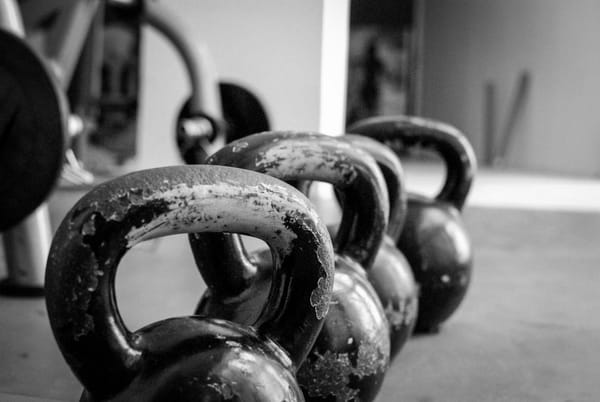Fixed or Growth Mindset; Which Are You?
Your mindset will determine your success. Do you believe you have set skills, intelligence, and talents, or do you believe you can improve in these areas through effort and learning? How you approach effort and learning, and deal with failures along the way, depends on whether you are a fixed or growth mindset individual. In Mindset, The New Psychology of Success, Carol Dweck, Ph.D., introduces the concept of the Fixed and Growth Mindset and explains how each impact our approach to life.
The belief that your qualities are set in stone is the fixed mindset, it;
creates an urgency to prove yourself over and over. If you have only a certain amount of intelligence, a certain personality, and a certain moral character— well, then you’d better prove that you have a healthy dose of them. It simply wouldn’t do to look or feel deficient in these most basic characteristics."
The growth mindset is based on the belief that your qualities can be cultivated through your efforts.
The passion for stretching yourself and sticking to it, even (or especially) when it’s not going well, is the hallmark of the growth mindset. This is the mindset that allows people to thrive during some of the most challenging times in their lives."
Fixed mindset individuals label themselves failures when they fall short of success, whether that be in work, athletics, or relationships. While growth minded persons view failure, though perhaps equally painful, as opportunity for learning and growth. One group allows the failure to define them, the other reframes it in an effort to become a better version of themselves. As stated in the opening quote; “Becoming is better than being,” the fixed mindset believes they must already be, there is no becoming, while the growth mindset relishes in the becoming. The growth mindset accepts criticism and correction — as part of the process to becoming. The fixed mindset often puts up walls of denial, deflects, and takes criticism as personal judgement.
Beliefs about effort differ between those with the fixed mindset and those with a growth mindset. The fixed mindset fear effort (the fear of effort is the Resistance discussed in a previous article). Their belief that talents, skill sets, and intelligence are innate keeps them from putting in effort for fear of failure. Their mentality is if it doesn't come easily then they weren't meant to do it. Whereas the growth oriented individuals understand effort is a requirement to success. You must put in the effort to achieve the ability. They believe one isn't born with fixed talent or intelligence but rather effort equates to growth, and growth has no limits. This isn't to say the growth minded aren't realistic, rather they refuse to place limits on themselves. They can always rise to another level beyond the level at which they are currently.
The fixed mindset group can fall into a habit of putting out less than optimal effort to leave the window of excuses cracked. This way they can blame not achieving their goals on the fact that they didn't give 100%, and they didn't give 100% because they believe if naturally talented then they shouldn't need to. There are as many examples of "gifted" children who never reached their full potential for lack of effort due to fear of trying and failing as there are individuals who became great through hard work. The latter using failures as fuel for growth. Fixed minded individuals want to label these successful individuals as having been born with God given talent — Naturals. The growth minded see that the talented without work ethic fall short of potential, and that effort creates talent. Olympic athletes aren't born, they're made. Hemingway didn't come out of the womb with a typewriter in hand, he crafted his skills and worked habitually to produce work.
Individuals can have a fixed mindset in some areas and growth mindset in others. I struggle with a fixed mindset within the work environment and certainly in the area of relationships. Yet, I feel overall I have a growth mindset, a curiosity for learning and a yearning for expanding my abilities. I show this more-so in the pursuits I enjoy, the physical and creative. However, I admit there are areas in my life where I seek validation and shy away from that which may lead to failure. I recognize I react to, and pursue, certain endeavors in what feels like an instinctual need to prove myself. This comes from a place of self judgement projected on others as peer judgement. Initially, reading the definition of fixed versus growth mindsets I would have clearly categorized myself as growth. Reading further I see the struggles I have with a fixed mindset. I believe my fixed mindset drove me further into depression last year, while my growth mindset is what pulled me out of it.
Dweck briefly touches on the topic of depression in the book. A study of college students showed a higher rate of depression in those with a fixed mindset. They tended to ruminate on their issues, beating themselves up with internal dialog, and letting those issues define them. While I can't disagree with her findings, I believe this was a small subset of students and a simplified view of depression. I'd be interested to see data on the mindsets of those diagnosed with clinical depression or bipolar. I suspect we'd see similar reports of higher cases with fixed mindsets, but I'd be curious if depression, clinical or otherwise, pushes people into a fixed mindset or if a fixed mindset leads people to depression. Either way I think it's important to note while studies show higher rates of depression in the fixed mindset group, that didn't leave the growth mindset impregnable to mental illness. The difference is how they deal with it. The growth mindset were more apt to separate themselves from their condition, not define themselves by it, and proactively look for resolution.
Dweck delves thoroughly into how these two mindsets show up in your decisions and actions in the workplace, school, relationships, sports; and how parents, teachers, and one's peers influence which mindset one adopts. For the sake of length I may circle back in future articles with specifics on work, school, athletics, and relationships. I do, however, want to cover the influences briefly. There are interesting and important findings about parenting, teaching, and bullying that may be of interest to those of you with children. This data gave me an opportunity to reflect on my own childhood to better understand how I may have formed my beliefs so I can reconstruct them.
So, how do we become one or the other if we assume we're all born with an innate desire to learn and grow? Well, along the way we are confronted with people and experiences that begin to shift and mold our beliefs. These are our parents, teachers, coaches, peers, and authority figures that give us feedback on our abilities, effort, performance, talents, and appearance. Dweck gives numerous examples of what a fixed and growth response from these influencers may look like in various scenarios. Overwhelmingly, Dweck finds praise, and specifically the type of praise, to be a strong indicator of how a child develops their mindset. Fixed mindset individuals lacked praise altogether, received negative judgements, or were praised for their talents and abilities — which eventually they placed limits on. Growth mindset individuals received praise for their effort and growth, regardless of the outcome, fostering in them the desire to learn and the acceptance of failure as just a byproduct of learning.
Parents think they can hand children permanent confidence— like a gift— by praising their brains and talent. It doesn’t work, and in fact has the opposite effect. It makes children doubt themselves as soon as anything is hard or anything goes wrong. If parents want to give their children a gift, the best thing they can do is to teach their children to love challenges, be intrigued by mistakes, enjoy effort, and keep on learning."
Fittingly, there is no magic pill, or therapy, to changing your mindset. According to Dweck, it comes down to being aware the two exist, understanding we have the capabilities for growth in all areas of our lives, and making detailed plans for doing the work to learn and develop a growth mindset. She ends the book with a few statements/questions we can take with us to achieve success.
- "What are the opportunities for learning and growth today? For myself? For the people around me?"
- "When, where, and how will I embark on my plan?"
- "What do I have to do to maintain and continue the growth?
Related Content Elsewhere:
Mindset by Carol Dweck – Summary
(Alex Vermeer)
MindSet Official Web SiteFixed vs. Growth: The Two Basic Mindsets That Shape Our Lives




